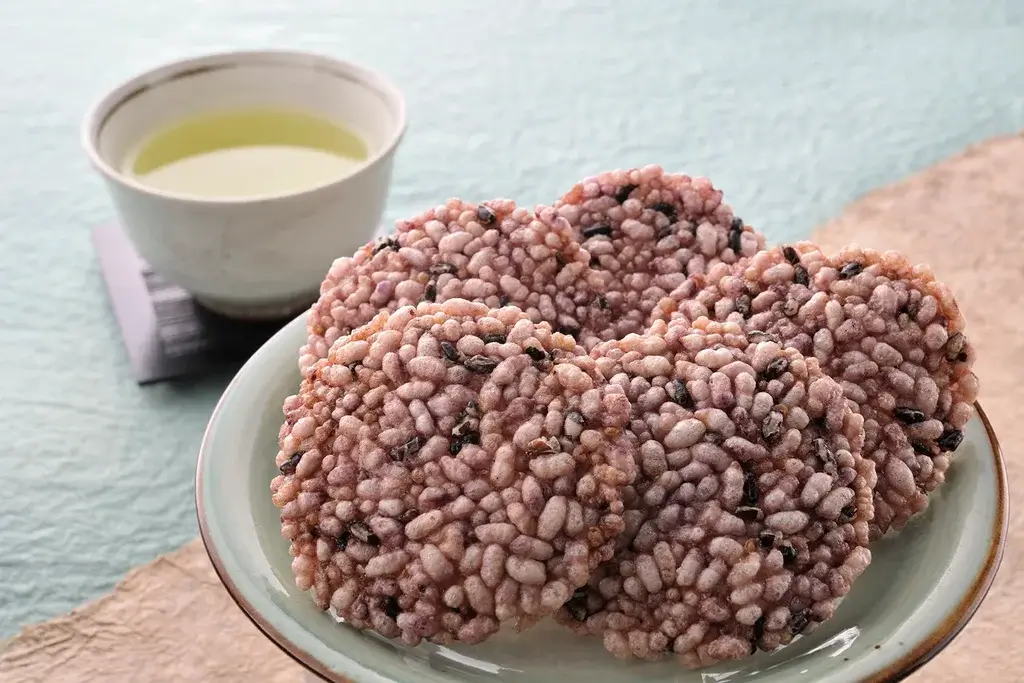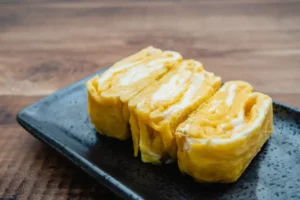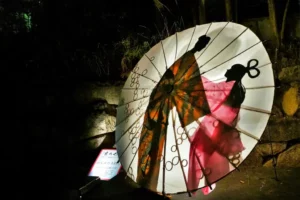Black rice has intrigued the culinary world for centuries with its rich history and striking appearance. This ancient grain is the star ingredient in a unique Japanese snack: kodaimai senbei. These crackers’ distinct flavor profile sets them apart from white rice senbei. In this article, we delve into what makes kodaimai senbei so special, exploring its origins, health benefits, and cultural significance.
Table of Contents
ToggleWhat is kodaimai senbei?
Kodaimai senbei is a traditional Japanese rice cracker crafted from black rice called “kodaimai.” Kodaimai refers to rice varieties that have been cultivated since ancient times. In the case of kodaimai senbei, it is a vibrant and dark variety known for its deep purple and strong flavor. These crackers blend black rice with other ingredients like white rice, glutinous rice, quinoa, and black sesame seeds.
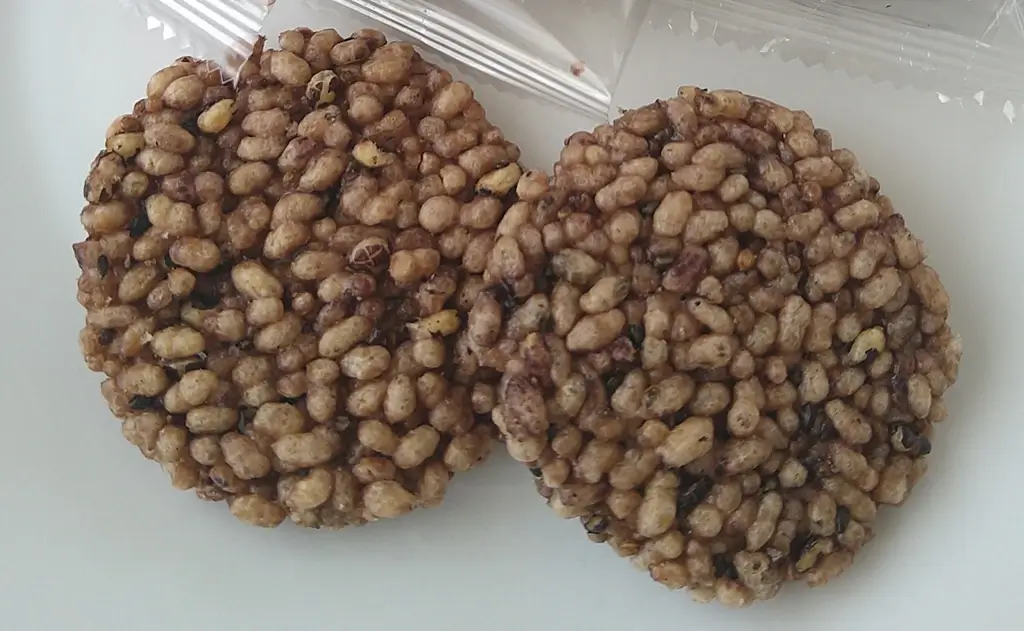
Preparing kodaimai senbei involves using whole grains such as quinoa mixed with white rice and shaped into crackers. Next, the crackers are fried using only about half the oil typically used in traditional fried senbei, which makes them a lighter and healthier option. The rice retains its natural flavors using whole grains, resulting in a cracker that delivers a rich, nutty taste with a slightly crunchy texture.
Why does it use black rice?
Black rice is used in kodaimai senbei due to its nutritional value and cultural significance. It’s rich in anthocyanins, an antioxidant that gives it its dark purple hue. These antioxidants are famous for their health benefits, including reducing inflammation, improving heart health, and helping prevent lifestyle-related diseases such as blood clot formation.
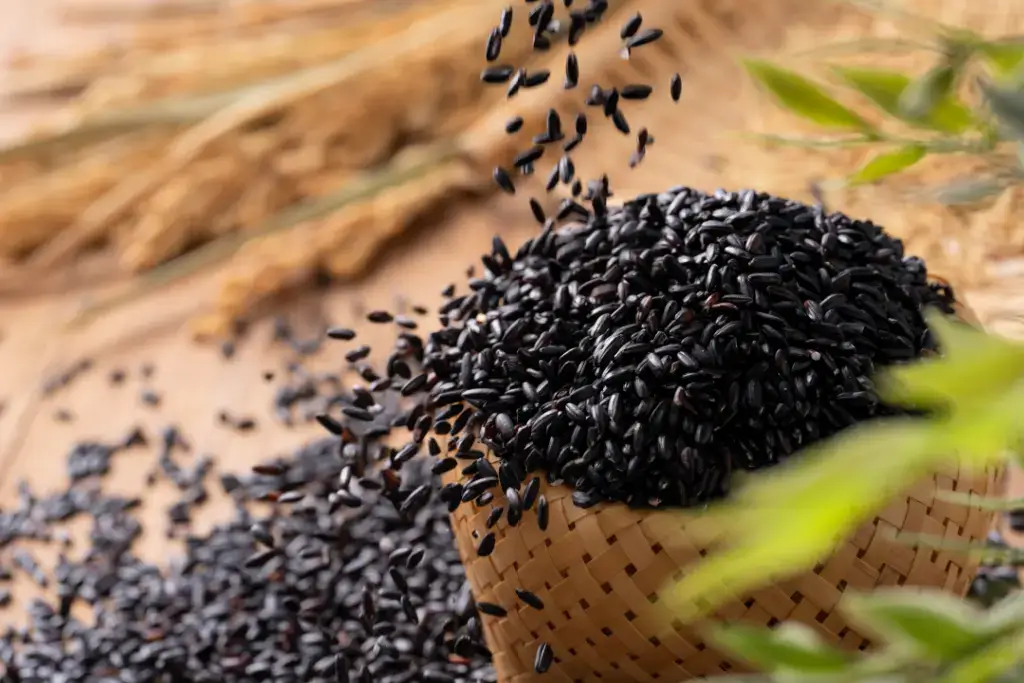
It also has a unique texture and flavor that enhances the overall taste of the senbei. Its slightly chewy texture and nutty flavor complement the crunch of the cracker. The decision to use it in kodaimai senbei is a testament to preserving traditional flavors while offering consumers a nutritious snack.
Are you looking for great snacks such as kodaimai senbei? Check out Sakuraco! Every month, Sakuraco delivers delicious Japanese snacks, teas, and sweets from Japan so you may enjoy them at home.
Are there any health benefits from kodaimai senbei?
Kodaimai senbei offers several health benefits, largely due to its main ingredient—black rice. Black rice retains its bran and germ as a whole grain, making it a rich source of fiber, vitamins, and minerals. This high fiber content contributes to better digestion and helps maintain a healthy weight by promoting a feeling of fullness. Additionally, the antioxidants present in black rice may lead to a lower risk of certain cancers.
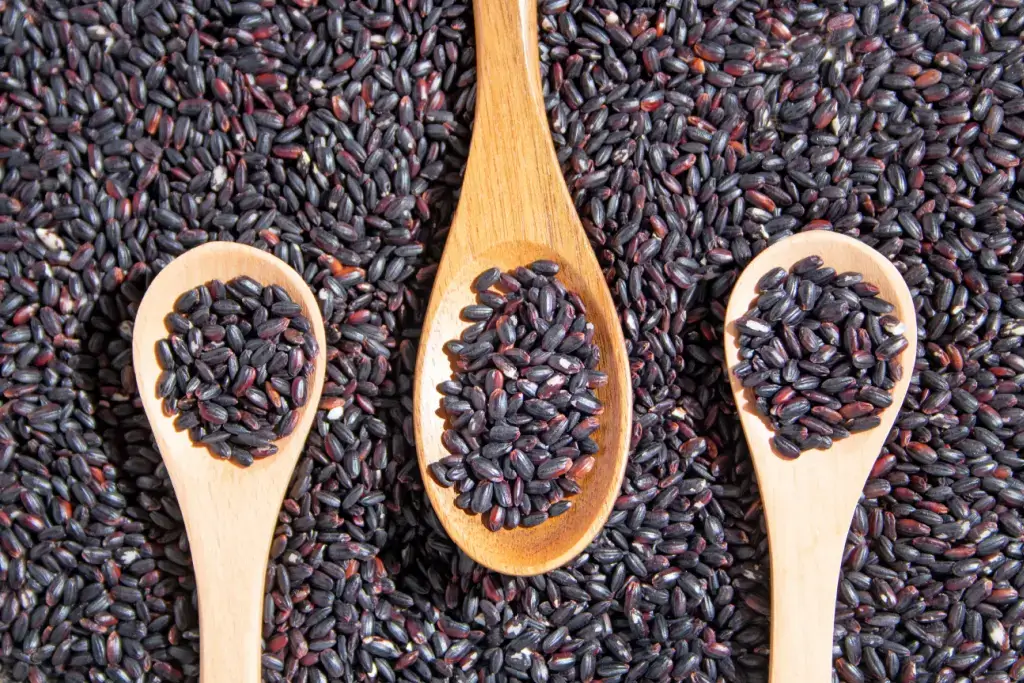
Beyond its fiber and antioxidant content, black rice also has a low glycemic index, which helps manage blood sugar or avoid spikes in energy levels. In addition, Kodaimai Senbei includes ingredients like quinoa and black sesame seeds, which further enhance its nutritional profile. Quinoa is a complete protein, while black sesame seeds are rich in healthy fats and minerals.
Where can I buy kodaimai senbei?
You can easily find kodaimai senbei at many supermarkets throughout Japan. These stores typically offer a variety of flavors and brands, making it convenient to pick up this delicious snack. Kodaimai senbei pairs exceptionally well with hojicha, a roasted green tea known for its warm, nutty flavor. Combining the rich, nutty taste of the senbei and the toasty notes of hojicha creates a delightful snacking experience that is both satisfying and enjoyable. Whether you enjoy it at home or on the go, this pairing will surely please your palate.
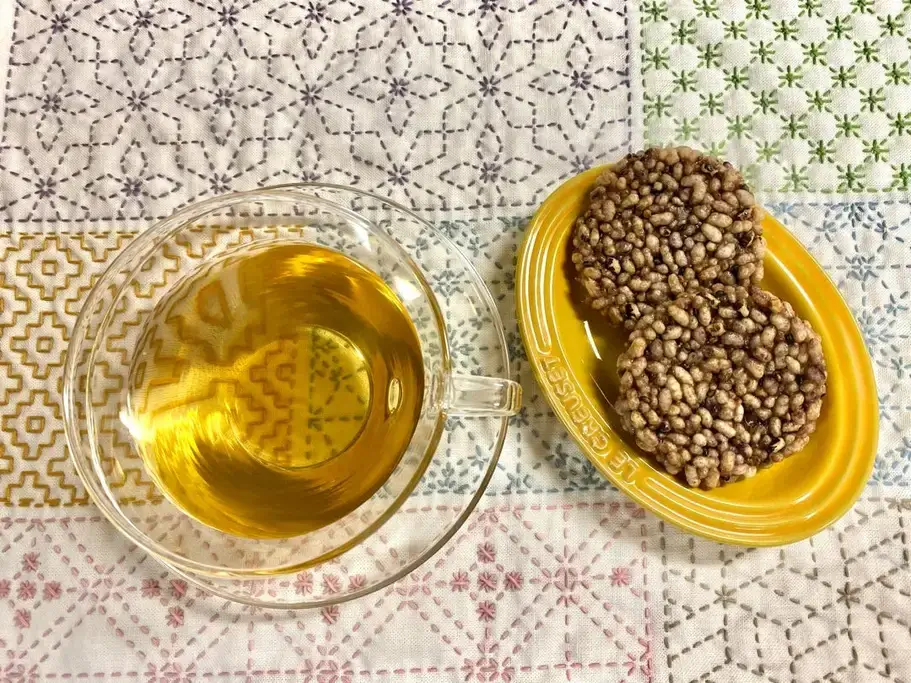
Where did these crackers come from?
Historically, black rice was a rare and precious grain, often reserved for royalty and special occasions. Making senbei, or rice crackers, is a long-standing tradition in Japan. Its use in senbei is a recent innovation, reflecting the desire to preserve traditional flavors and the growing appreciation for the health benefits of ancient grains.
The exact origin of Kodaimai Senbei is rural Japanese communities. Over time, these crackers gained popularity beyond their local roots, becoming a beloved snack. Today, Kodaimai Senbei represents a fusion of ancient agricultural practices and modern culinary innovation, offering a snack that honors Japan’s rich cultural heritage while catering to modern tastes.
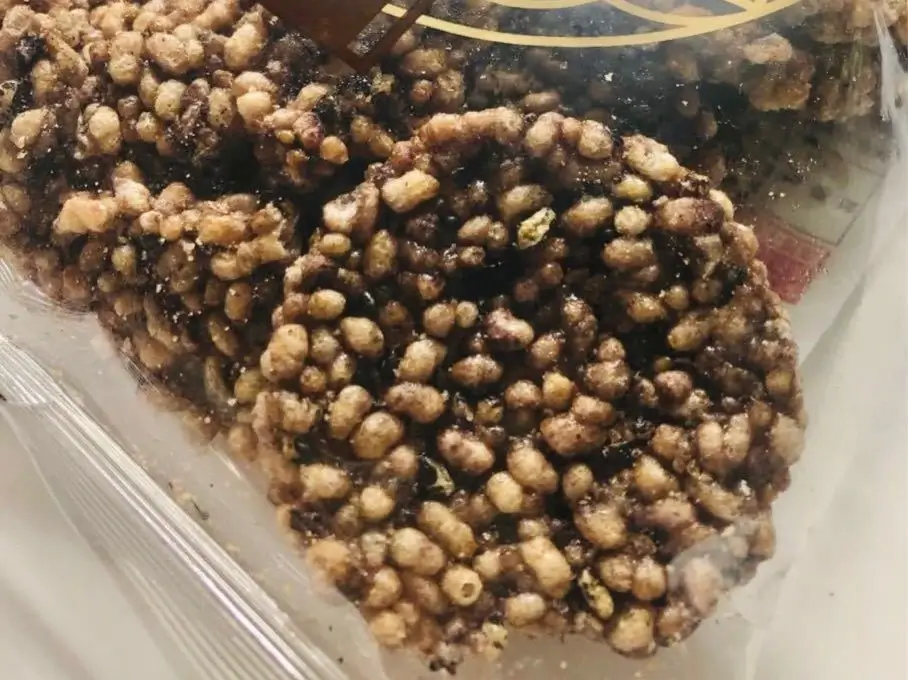
Why should I try kodaimai senbei?
If you’re seeking a unique and healthful snack, kodaimai senbei should be at the top of your list. Combining ancient black rice, white rice, quinoa, and black sesame seeds results in a delicious and nutritious product. Whether you’re interested in the health benefits of black rice or simply want to try something new and different, Kodaimai Senbei offers a satisfying and beneficial experience!
Kodaimai senbei is a journey into Japan’s history and food culture, all wrapped up in a delicious, crunchy bite. Overall, kodaimai senbei stands out with a unique flavor in the crowded world of snacks. But beyond taste, these crackers provide health benefits, making them an excellent choice for anyone looking to enjoy a tasty and nutritious treat! Have you tried kodaimai senbei before? What did you think of its flavor and texture? Let us know in the comments below!

